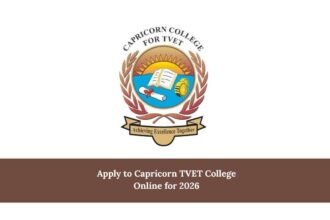Why It’s Not Too Late to Apply to University Through Clearing? As we near the end of the 2025 admissions cycle, it’s not uncommon for students to still be undecided about their university journey. You may be considering your options, and if you haven’t yet applied to university, there’s good news: Clearing is a valuable option for all students. It’s not too late to take the next step in your academic career!
Every year, over a million students sign up for a UCAS account. However, a significant number of them – approximately 400,000 students – never actually submit an application. This reflects a wider trend: more students are waiting until the last minute to apply, reassessing their choices, and using Clearing as a strategic, rather than fallback, route into higher education.
If you’re still considering your next steps – whether you’re finishing up college, taking a gap year, or contemplating a career change – you’re not alone. Even if you’re worried you missed your chance, it’s important to know that it’s not too late to apply and get into university through Clearing.
Why Are More Students Applying Late?
In 2024, about 74,000 students successfully secured a place through Clearing, with roughly 21,000 of them using the process because they didn’t apply to university before the main deadline. This increasing trend of late applications can be attributed to several factors:
- Gap Year Considerations: Some students are taking a year off to travel, gain work experience, or figure out their future direction. This gives them more time to evaluate their options before committing to university.
- Employment Experience: Many students use this time to secure paid employment, which can help fund their education or simply provide them with valuable work experience.
- Waiting for Results: Other students are choosing to wait for their exam results before making their final decision, giving them more time to research courses and universities that align with their goals.
- Realizing the Opportunities: More students are discovering that Clearing is not just a last-minute option, but an opportunity for them to switch courses, apply to a different university, or even apply for the first time.
What Is Clearing – And How Does It Work?
Clearing is a process designed to help students secure a place at university after they’ve received their results. It’s intended for:
- Students without a confirmed place.
- Students who have changed their mind about their university or course.
- Those who missed the initial deadline to apply.
Clearing is available from early July to mid-October, with the peak activity happening right after A-level results in August.
If you haven’t applied yet, don’t worry. You can submit a new application and enter Clearing directly. Once you’ve received your Clearing number, you can start contacting universities to discuss available courses. Many institutions, including Nottingham Trent University, have dedicated Clearing hotlines, live chat support, and virtual open days to assist students through the process.
- Access to Thousands of Open Courses: Clearing gives you access to thousands of courses that still have vacancies. Some of these options may present exciting opportunities you hadn’t previously considered.
- An Opportunity for Career Focus: It’s not just about securing a qualification; university is a chance to discover your potential, build confidence, and develop skills that are highly valued by employers.
- Independence and Growth: A university education is a platform to gain independence, make lifelong connections, and grow both personally and professionally.
- Support Networks: Universities offering clearing placements are keen to provide support through various student support services, including academic tutoring, mental health support, and career guidance.
How to Choose the Right Course and University
When applying through Clearing, it’s essential to do your research to ensure you’re making an informed choice. Here’s a step-by-step guide to help you select the best course and university:
Step 1: Assess Your Interests and Strengths
- What subjects do you truly enjoy?
- What is your long-term career goal? Does the course align with this?
- Think about the skills you want to develop and the areas where you excel.
Step 2: Research Course Content
- Don’t just focus on the course title. The same degree title might differ widely across universities. Look into:
- Course modules
- Industry placements
- Hands-on opportunities
- Support available for your field of interest
Step 3: Consider Location and Lifestyle
- Think about where you want to study. Are you drawn to a big city, a campus-based university, or staying close to home?
- Consider what lifestyle suits you. Would you enjoy living near cultural hubs, or do you prefer a quieter, more rural environment?
- Explore university societies, sports, and recreational activities to see if they match your personal interests.
Step 4: Speak to Current Students or Alumni
- It’s always beneficial to get firsthand insights into the university culture and course experience. Universities often offer virtual open days or live chat options for prospective students.
Why Apply Through Clearing Now?
You might be wondering why you should apply now instead of waiting for the next academic year. Here’s why Clearing can be the right choice:
- Access to Courses You Might Not Have Considered: There are thousands of courses still available through Clearing, many of which you may not have considered initially.
- Financial Support Available: Even if you apply late, you’re still eligible for student finance, including tuition fee loans and maintenance loans. In addition, many universities offer bursaries and scholarships for Clearing applicants. For instance, Nottingham Trent University offers a range of financial aid, such as subject-specific scholarships and cost-of-living advice.
- University Experience: A university education isn’t just about the qualification – it’s about personal growth, networking, and preparing for your career. From expert teaching to internships and student activities, the university experience can change your life.
What’s Available for Late Applicants?
Worried about how to fund your studies? Even if you apply through Clearing, financial support is still available. Here’s a breakdown:
- Tuition Fee Loans: Available through your national student finance provider.
- Maintenance Loans: Help cover your living expenses while studying.
- University-specific Scholarships: Many universities, including Nottingham Trent, provide financial aid, often with a focus on Clearing applicants.
- Cost-of-Living Support: Universities can offer advice and tools to help you manage your money effectively during your time at university.
Financial Support
| Support Type | Details |
|---|---|
| Tuition Fee Loan | Available through national student finance provider |
| Maintenance Loan | To help cover living expenses during your studies |
| University Scholarships | Many universities offer targeted scholarships for Clearing applicants |
| Cost-of-Living Advice | Universities provide resources to manage finances |
Conclusion
Clearing is no longer just a fallback option; it’s a strategic opportunity for students who haven’t yet applied, changed their mind, or are reconsidering their choices. Whether you’re applying for the first time, switching courses, or seeking a fresh start, Clearing offers a flexible and accessible pathway into higher education.










